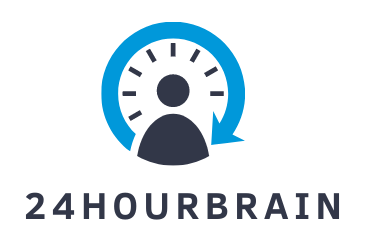Physical and mental fitness are inextricably linked. We explain how to boost your brain power and which sports are best for it.
Even regular daily exercise is sufficient to train and test your brain. Sports, on the other hand, have far-reaching consequences. Sport relieves stress and increases happiness.
However, a good mood is far from the only benefit of regular exercise. Sport is also said to improve people’s intelligence. In this article, we explain what this means and which sports can boost brain power.
Why Do Sports Improve Brain Power?
Sports and exercise have been shown to help us work with greater focus and concentration. Furthermore, as we get older, we can remember things better and learn new things faster. As a result, brain performance improves.
Sport provides blood to the brain while also relieving the thinking center and allowing nerve cells in the hippocampus, the brain’s learning center, to grow. This means you’ll be able to remember things better. Furthermore, the prefrontal cortex’s function is enhanced.
This forces you to focus more. Furthermore, physical activity promotes the release of a variety of hormones that promote brain cell growth. A morning jog, especially during exam periods, can be a great way to start the day.

Research Is Growing Rapidly
The link between physical activity and the mind has grown even more intriguing. On a regular basis, there are new, sensational studies. For example, Scott Small of Columbia University in New York, for example, recently subjected some test subjects to three months of exercise followed by a brain scan.
As a result, all of them had developed new blood vessels in their hippocampus. Arthur F. Kramer of the University of Illinois concluded from a review of several studies that sports improve concentration, reaction time, and short-term memory.
How Does Sports Affect Your Brain?
- Improve your memory
- Boost your self-esteem
- positively influence mood
- Increase your focus.
- Increase your focus.
- Improve your sleeping habits
Sport Activates Neurotransmitters
Physical activity raises dopamine, norepinephrine, and serotonin levels in the brain. At various levels, central neurotransmitters can influence motor behavior.
Physical activity raises the concentrations of dopamine, norepinephrine, and serotonin in the brain. At various levels, central neurotransmitters can influence motor behavior.
- Dopamine
Dopamine, a neurotransmitter, has a significant impact on your motivation. Dopamine, also known as the happiness hormone, increases anticipation and is thus important for motivation and goal achievement. If you’re feeling unmotivated, it could be because your dopamine levels are low. Physical activity, on the other hand, can boost your dopamine levels.
- Norepinephrine
The neurotransmitter epinephrine is related to norepinephrine. One of its primary functions is to keep your heart beating. Norepinephrine, a stress hormone, also functions as a neurotransmitter and can boost brain power. Furthermore, norepinephrine is in charge of focus and concentration. Increased oxygen concentration in the brain allows you to think more quickly.
- Serotonin
The neurotransmitter serotonin is responsible for your feelings and mood as a feel-good hormone. A low serotonin level can lead to feelings of depression and sluggishness. Regular exercise will raise your serotonin levels in the long run.

What Happens in the Brain?
When it comes to the link between physical activity and brain performance, the prefrontal cortex and the hippocampus are very important.
The prefrontal cortex is in charge of:
- Making choices
- concentrating
- Personality
On the other hand, there are the right and left temporal lobes, which contain the hippocampus. This aids in the retention of new facts and events in the long-term memory.
Movement causes the formation of completely new brain cells. That is why it is critical to have a functioning hippocampus. This region of the brain also has a low rate of neurogenesis, or the formation of new nerve cells.
The most significant change caused by exercise is the protective effect on the brain. The hippocampus and prefrontal cortex in the brain grow bigger and stronger like muscles, and your brain power increases.
Which Sports Keep the Brain in Shape?
Sports do not increase your IQ, but they do allow you to use your brain to its full potential. Some sports are better suited to combining fitness and mental stimulation than others. We’ll tell you which sports will also mentally challenge and stimulate you.
Cardiovascular Exercise
Any sport that raises your heart rate helps to slow cognitive decline. Cardio exercises in general contribute the most to this, as they increase brain volume and gray matter while also assisting with cognitive functions. The more intense the training, the more likely it is to improve memory, concentration, and learning ability.
Not only did your mood improve after just six weeks of intensive training, but so did your visual-spatial memory. As a result, you can better imagine things and orient yourself.
Cardio exercise is especially beneficial in the great outdoors, where your brain must also adjust to environmental stimuli. This also improves your ability to concentrate.

High-Intensity Exercise
Cycling, running, and sports such as soccer can improve brain function. A group of Swedish researchers discovered that moderate- to high-intensity exercise can improve memory, concentration, and learning ability, particularly in children. This continues for two hours after exercise.
Strengthening Exercises
Strength training causes your brain to produce more endorphins, which helps you deal with stress and heavy exertion while also elevating your mood. Furthermore, studies show that muscle-building exercise can help prevent Alzheimer’s disease.
Proteins such as irisin, according to researchers, are responsible for these effects. These are released during strength training and stimulate the formation of new brain synapses and nerve cells. This prevents the brain from losing mass and shrinking in the long run.
Table Tennis
Reaction time is essential in all sports, but it is especially important in table tennis. The central nervous system processes signals received through the eyes. The signal is then transmitted by neurons from the brain to the muscles. This coordination training is especially beneficial for increasing brain power.

Dancing
Dancing constantly tests your brain as you learn new steps, memorize them, and practice them. This results in the formation of new neural connections. According to researchers, dancing improves attention, memory, and mental flexibility. All of this boosts brain power.
Yoga
Do you ever get lost in your thoughts because you have to do so many things at once? Focusing on asana execution and conscious breathing is essential in yoga. According to an Illinois University study, regular yoga practice increases the volume of the hippocampus.
The hippocampus, which plays a role in memory processing, shrinks with age. Those who exercise to counteract this process are less likely to develop dementia or Alzheimer’s disease.
Yoga also makes the limbic system stronger. The limbic system controls emotions like anger, fear, joy, and pleasure. It is also a key part of learning and memory.

How Much Exercise Is Required?
In the beginning, it is usually sufficient to exercise for at least 30 minutes three to four times per week. You don’t need to go to an expensive gym for this; jogging or training with your own body weight, such as push-ups and squats, will suffice for now.
Later on, you should train every day and mix different sports. For example, one day you could do 30 minutes of fast walking or jogging, followed by a day of swimming or bodyweight training.
Also, make some changes to your daily routine to incorporate more movement. This includes activities such as stair climbing and gardening. The entire world is your gym.
Conclusion
You can begin immediately by directly increasing your brain power. Exercise improves your mood, concentration, and memory, and it also has a long-term effect that can protect against Alzheimer’s and dementia. Physical activity can make a big difference in how well you think, so it is a good way to help people who are depressed.
Several studies have found that exercise improves mental fitness by producing higher thinking skills. This includes self-control, attention, memory, and the ability to plan and make decisions strategically.
Combining different types of sports is the most effective method. This is because it challenges the brain to its limits, which should improve the brain’s ability to change and adapt.


